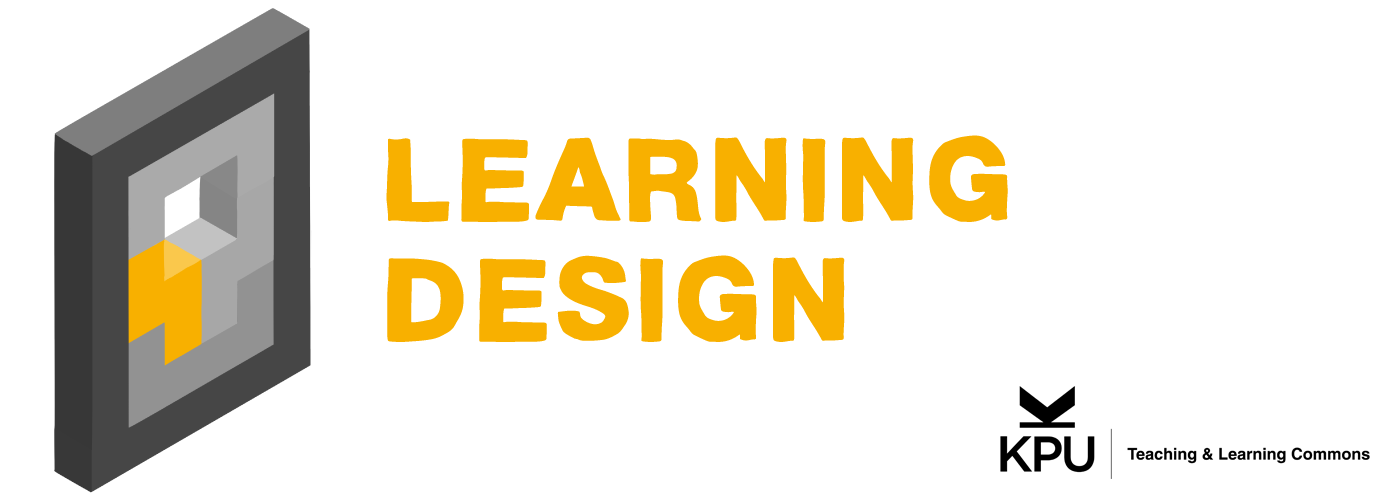The Inclusive Teaching domain provides an overview of the KPU student population with a focus on building awareness of multiple student perspectives and experiences. Course design and teaching approaches that consider all social identities and foster respect for all student needs are explored. Strategies for building inclusive learning communities are provided, and participants will be introduced to key vocabulary and practices related to justice and equity, including intercultural teaching, antiracist teaching, Indigenization/decolonization, and supporting 2SLGBTQ+ learners.
- Facilitator: Daniel Benzimra
- Facilitator: Daniel(OLD) Benzimra
- Facilitator: Lisa Gedak
- Facilitator: Lisa Gedak
- Facilitator: Nishan Perera
- Facilitator: Leeann Waddington
The Learning Assessment domain provides an overview of important concepts related to assessing student learning as prescribed in course learning outcomes. The characteristics of formative and summative assessment are examined and differentiated, and the role of each method is explained. A variety of grading methods will be explored, relevant assessment policies reviewed and strategies for maintaining academic integrity will be provided.
- Facilitator: Daniel Benzimra
- Facilitator: Daniel(OLD) Benzimra
- Facilitator: Lisa Gedak
- Facilitator: Lisa Gedak
- Facilitator: Nishan Perera
- Facilitator: Leeann Waddington

The Learning Design domain provides an overview of important concepts related to effective course design and principles of adult learning. The modules within this domain explore foundational pedagogical theories and frameworks that support supportive and engaging course design. Participants will understand constructive alignment and examine policies and procedures that must be considered when designing and delivering courses at KPU. Pre-designed Moodle course templates are introduced and made available to participants for designing inviting, engaging, and effective digital learning environments in Moodle.
- Facilitator: Daniel(OLD) Benzimra
- Facilitator: Lisa Gedak
- Facilitator: Lisa Gedak
- Facilitator: Nishan Perera
- Facilitator: Leeann Waddington
The Learning Technologies domain provides an overview of KPU’s learning technology infrastructure and explores how these learning technologies can support different pedagogical approaches. Considerations for selecting suitable technologies are provided, including data privacy and security, relevant policies and procedures, and the digital literacies required to access and effectively use these technologies. Resources for using technologies provided by the Teaching and Learning Commons and IT are introduced, as is the process for requesting additional learning technologies.
- Facilitator: Daniel Benzimra
- Facilitator: Daniel(OLD) Benzimra
- Facilitator: Lisa Gedak
- Facilitator: Lisa Gedak
- Facilitator: Nishan Perera
- Facilitator: Leeann Waddington
The Reflective Practice domain introduces models, principles, and intentional activities to promote and support educators in developing their practice. By critically reflecting on our teaching, we can question the validity of our teaching assumptions and the efficacy of our teaching activities. The short, structured modules within this domain explore foundational concepts and perspectives such as a growth mindset, strategies for developing reflective practices, pathways to scholarship, supportive technologies, and the development of a teaching philosophy informed by reflective practice. Guided by clear learning outcomes, participants will consider the role of reflection in the continued improvement of one’s teaching and professional practice.
- Facilitator: Daniel Benzimra
- Facilitator: Daniel(OLD) Benzimra
- Facilitator: Lisa Gedak
- Facilitator: Lisa Gedak
- Facilitator: Nishan Perera
- Facilitator: Leeann Waddington
